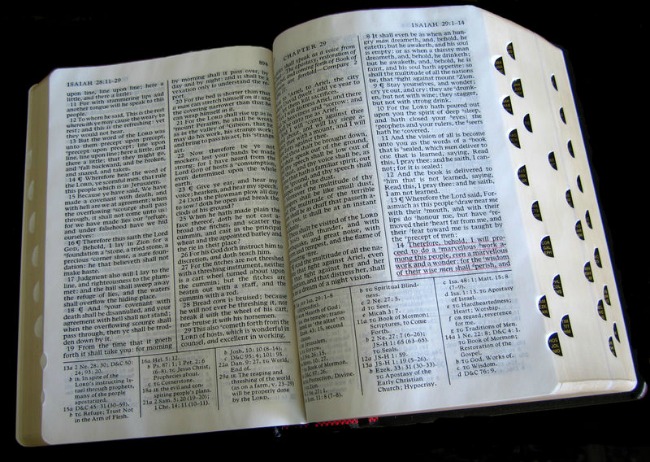Question
Dear Gramps,
Hi! I am writing because my fiance has a problem and I want to help him with it. In his teen years, he had a homosexual encounter (not sexual) and it left quite a mark on him. He repented, but he revealed to me that once in a great while the thought comes in his head that he wishes he could be close to a man again (not in a sexual way, and I know he wouldn’t lie about that), but upon talking about it more, he revealed to me that he mostly feels this way out of envy for the way other men look and he wishes he looked more like those “buff” men. Also, these thoughts come when he’s idle and has nothing to do. He knows for a fact he could never be with a man because when it comes right down to it, the thought disgusts him. I know we all have thoughts that flee through our heads, but is it a sin when we think something that we ourselves would never actually do? Why do our sins often haunt us even when we’ve repented, going before the Lord, forsaking sin, praying constantly for forgiveness)? I know my sins before I joined the church often haunt me and tempt me to do wrong, but I know I could never do them again. I suggested counseling (By a church member, of course, because a “worldly” counselor would tell him he’s gay and to come out of the closet) and we could work out together and we’d do more praying & scripture study. What are your thoughts?
C.A.
Answer
Dear C.A.,
There is an interesting scripture that bears on this point,
For our words will condemn us, yea, all our works will condemn us; we shall not be found spotless; and our thoughts will also condemn us; and in this awful state we shall not dare to look up to our God; and we would fain be glad if we could command the rocks and the mountains to fall upon us to hide us from his presence (Alma 12:14).
Here are the three areas where agency may be expressed and where accountability before the Lord rests–thoughts, words, and actions. The object of our sojourn in mortality is to gain control in these three areas of agency. The easiest of these is the last, our actions. But actions may be controlled for many reasons, not all of them lead to character building and righteousness. We might control our actions, for instance, for fear of discovery, but would be quick to commit the offensive act if it could be performed in secret. On the other hand we may avoid committing sin because we could not look upon sin save it were with abhorrence (Alma 13:12).
It is more difficult to guard our words so that no unclean thing may issue forth from our lips. In the Bible, James severely lectures the point-
For in many things we offend all. If any man offend not in word, the same is a perfect man, and able also to bridle the whole body.
Behold, we put bits in the horses’ mouths, that they may obey us; and we turn about their whole body.
Behold also the ships, which though they be so great, and are driven of fierce winds, yet are they turned about with a very small helm, whithersoever the governor listeth.
Even so the tongue is a little member, and boasteth great things. Behold, how great a matter a little fire kindleth!
And the tongue is a fire, a world of iniquity: so is the tongue among our members, that it defileth the whole body, and setteth on fire the course of nature; and it is set on fire of hell.
For every kind of beasts, and of birds, and of serpents, and of things in the sea, is tamed, and hath been tamed of mankind:
But the tongue can no man tame; it is an unruly evil, full of deadly poison.
Therewith bless we God, even the Father; and therewith curse we men, which are made after the similitude of God.
Out of the same mouth proceedeth blessing and cursing. My brethren, these things ought not so to be (James 3:2-10).
Again, we may control our language for fear of offending others or because of the purity of our souls. But there is neither a word nor an action that is not preceded by a thought. Our thoughts control both what we say and what we do. Therefore, the battlefield between good and evil, between righteousness and wickedness, is played out in the mind; and control of our thinking is the ultimate goal for self perfection.
However, we live in the most wicked of all the worlds that have ever been created (Moses 7:36) and evil is ever before us. We cannot avoid having our senses impress on our minds the unspeakable wicked environment of which we are a part. What to do? We cannot avoid unclean thoughts from coming into our mind when we are exposed to an unclean atmosphere. What we do with those unclean thoughts, however, is critical to our salvation. If we savor them, vicariously live the experiences that they represent, we are as guilty as if we had committed the action. However, if we find them distasteful and abhorrent, then we try to process them as we would any other unwanted garbage. For [as a man] thinketh in his heart, so is he (Proverbs 23:7).
The struggle for righteousness is a lifelong struggle. We should not condemn ourselves if we are traveling the road to righteousness, but rather if we are living, savoring, attempting to justify aberrant behavior.
Gramps







